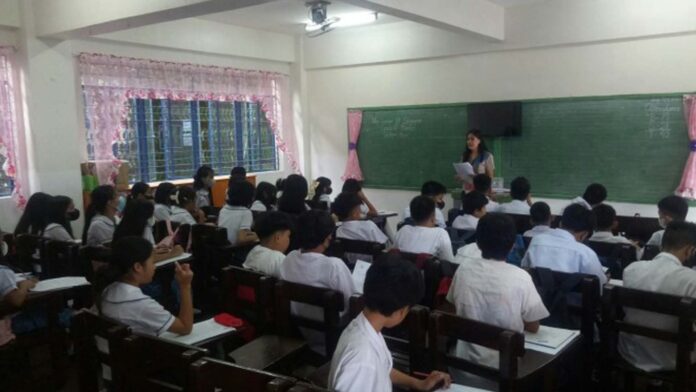World Bank (WB) education specialists have outlined a range of support measures needed to improve the Philippines’ performance in International Large-Scale Assessments (ILSAs) beginning with foundational skills.
During the ILSAs Online Symposium on Sept. 9, the WB experts said that to improve education systems, there is a need to focus on literacy and numeracy especially in the early grades, where building a strong learning foundation is crucial.
Diego Luna Bazaldua, one of World Bank’s senior education specialists, recommended that reforms should focus on integrating literacy and numeracy into all subjects and moving from a content-based to a competency-based curriculum.
He said this has been a successful strategy in countries like Ireland and Vietnam, where students’ learning outcomes improved over the past decade.
However, redesigning the curriculum alone is not enough. Bazaldua said to ensure the success of such changes, learning materials must be aligned with the new curriculum, and teachers must be trained.
An additional recommendation was to adopt long-term commitments rather than short-term initiatives.
“Achieving substantial improvements in international assessments like PISA requires years of focused and sustained efforts,” Bazaldua said, as quoted in a news release of the Second Congressional Commission on Education (EDCOM 2).
He also pointed to the need to address inequities in education, ensuring that students from all socio-economic backgrounds have access to quality foundational skills early in their education.
The ILSAs Online Symposium was organized by the EDCOM 2, along with the WB Philippine Country office and the Philippine Institute for Development Studies to discuss how ILSAs can be used in driving education reforms that would respond to the needs of Filipino learners.
Along with WB technical experts, EDCOM 2 co-chairperson Rep. Roman Romulo, Advisory Council Member Fred Ayala, Standing Committee Members Diosdado San Antonio and Teacher Therese Bustos and representatives from other EDCOM 2 Commissioners’ offices were also present in the symposium. DepEd officials were also in attendance, led by Undersecretary Gina Gonong.
A key focus of the symposium was the Philippines’ Programme for International Student Assessment (PISA) 2022 results, which showed that over 75 percent of Filipino students are low performers in mathematics, science, reading and creative thinking.
EDCOM 2’s analysis also found that, in comparison to the results of neighboring countries, the highest-achieving Filipino students are only comparable to the average students in countries like Malaysia, Thailand, Brunei and Vietnam, and to the weakest students in Singapore.
The symposium also touched on the issue of language of instruction.
Ayala raised the question of whether conducting PISA in Filipino, rather than English, would have led to better outcomes for Filipino students.
Koji Miyamoto, another WB expert, responded that while there might be some differences, language alone would not guarantee better results.
“Other factors, such as socio-economic contexts and learning environments, play a significant role in learning outcomes,” he said.
Romulo echoed this concern, noting that the DepEd is legally mandated to use the mother tongue as the language of instruction in basic education. This requirement, however, poses challenges in a country with 19 major languages.
“Under our current laws, we are required, as a medium of instruction, to teach in the language that is dominant in that particular region or particular place or that particular school. In fact, that was the reason given to me by DepEd before, that is why they chose the English language — because we have too many languages. And because we have too many languages, it becomes impossible to choose just one,” Romulo said. (PNA)






